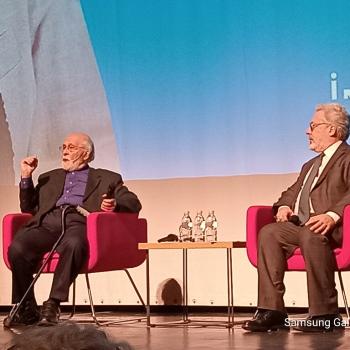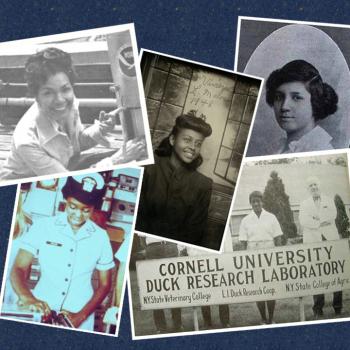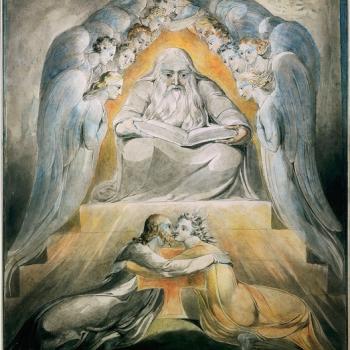
Reading Tolkien’s stories, it is easy to pick up the fact that the various races of Middle Earth often stood in competition with each other, causing various forms of racial tension and notions of racial supremacy to emerge.[1] Some readers, following this line of thought, try to use Tolkien as a prop for their own racism. They see that claims of superiority prove that there should be some races, some groups, which are seen as superior to others, who, then, are justified in keeping to themselves while they expect entitled treatment from others. However, this approach to his works would go against what Tolkien himself has said of his own beliefs elsewhere.
J.R.R. Tolkien, born in Bloemfontein, of the Orange Free State (now a part of South Africa), knew of the prejudices which were found in his birth place, prejudices which he firmly opposed. In his Valedictory Address to the University of Oxford (1959), he mentioned his firm detestation of all forms of apartheid:
If we consider what Merton College and what the Oxford School of English owes to the Antipodes, to the Southern Hemisphere, especially to scholars born in Australia and New Zealand, it may well be felt that it is only just that one of them should now ascend an Oxford chair of English. Indeed, it may be thought that justice has been delayed since 1925. There are of course other lands under the Southern Cross. I was born in one; though I do not claim to be the most learned of those who have come hither from the far end of the Dark Continent. But I have the hatred of apartheid in my bones; and most of all, I detest the segregation or separation of Language and Literature. I do not care which of them you think White.[2]
As Tolkien was a philologist, it is understandable why he mentioned his utter detestation of the artificial separation and division between the fields of Language and the Literature; he understood the study of one needed the study of the other. Trying to divide them, creating disciplines which saw themselves as superior to the other, fell for a grave error which would end up harming both. What is important and fitting about his remarks is that he understood such distinctions often were based upon prejudices and biases, artificial classifications, similar to the kinds which are used by racists to justify their racism. This is what tied his comments together. He did not care for what people looked for as being superior to others, and using that to justify the unjustifiable, that is the creation of artificial division among peoples based upon whatever biases they use to create such divisions. “I do not care which of them you think White,” indeed!
Knowing his biographical history will give a glimpse as to how Tolkien grew to detest such ideologies. While he was born in South Africa, he did not live there long; when he was three, when Tolkien, his brother Hilary, and his mother were visiting England, his father died. While his family was initially taken care of by other family members, when his mother converted to Catholicism (and with her, Tolkien and his brother as well), most of his extended family cut off all aid, so that the Tolkiens had to live on their own, with his mother working hard to take care of her children, both physically and spiritual. With all the stress, and poor physical health due to diabetes, she died young, at the age of thirty-four; by the time of her death, she had chosen Fr. Francis Xavier Morgan, a priest in the Birmingham Oratory, to be the guardian of her children. The prejudice which most (but not all) of his extended family held against Catholicism, he felt, had pushed her to an early death, making him realize how dangerous bigotry was to a healthy society. He held high regard for Fr. Morgan, although, when he met Edith Bratt, Fr. Morgan put a stop to their relationship, demanding they stay apart until Tolkien was twenty-one years old.
The horror of his early life, the horror of feeling betrayed by his own family, is reflected in many of Tolkien’s own writings, including and especially in the story of Beren and Lúthien, characters which he saw connected to himself and the love of his life, Edith. Beren, a human, and Lúthien, the daughter of an Elvish king, fell in love, but Lúthien’s father, Thingol, opposed it as much as he could. While many note that the story reflects, in part, Tolkien’s experience of his own desire to marry Edith, and the challenges he faced with his guardian, Fr. Morgan, the racial prejudices which were manifest in Thingol’s rejection of Beren must not be ignored. Thingol’s objections to Beren marrying his daughter lay in part with Beren’s lowly status as a man, similar to the way many racists would be upset with their daughter dating and marrying a man who was of a race they denigrated:
But Thingol looked in silence upon Lúthien; and he thought in his heart: ‘Unhappy Men, children of little lords and brief kings, shall such as these lay hands on you, and yet live?’ Then breaking the silence he said: ‘I see the ring, son of Barahir, and I perceive that you are proud, and deem yourself mighty. But a father’s deeds, even had his service been rendered to me, avail not to win the daughter of Thingol and Melian. See now! I too desire a treasure that is withheld. For rock and steel and the fires of Morgoth keep the jewel that I would possess against all the powers of the Elf-kingdoms. Yet I hear you say that bonds such as these do not daunt you. Go your way therefore! Bring to me in your hand a Silmaril from Morgoth’s crown; and then, if she will, Lúthien may set her hand in yours. Then you shall have my jewel; and though the fate of Arda lie within the Silmarils, yet you shall hold me generous.’[3]
Tolkien understood what it was to be looked down upon by others, to be thought lesser, and mistreated because others believed themselves to be superior and demanded obedience and respect because of it. Thingol, seeing Beren as an inferior unworthy of his daughter, put forward a challenge that he thought could not be met, for Beren to take the Silmaril from the crown of the Dark Lord, Morgoth, knowing that Morgoth never would have it out of his presence. Thingol demanded what he thought was impossible, and yet Beren took up the quest. Beren, despite being a human, despite being apparently inferior to the Elves, proved himself their superior by doing what they thought was impossible: he was able to get the Silmaril, though it cost him much in the process, and Lúthien herself aided him so that without her, he would have failed. But the point is that Thingol had misjudged Beren, the way supremacists misjudge others: his own thoughts of superiority made him ignore the greatness which was before him. Beren was a great hero, indeed one of the greatest, whose glory surpassed most of the Elves. When Beren completed the fool’s errand, Thingol finally understood what he had brought, all the harm which he caused to himself, to his kingdom, to his daughter, all because of his pride, and he actually had a change of heart:
Then Thingol’s mood was softened; and Beren sat before his throne upon the left, and Lúthien upon the right, and they told all the tale of the Quest, while all there listened and were filled with amazement. And it seemed to Thingol that this Man was unlike all other mortal Men, and among the great in Arda, and the love of Lúthien a thing new and strange; and he perceived that their doom might not be withstood by any power of the world. Therefore at the last he yielded his will, and Beren took the hand of Lúthien before the throne of her father.[4]
The challenge, then, which came out of Thingol reflected Tolkien’s own challenges to get his own guardian to accept his relationship with Edith, but yet, connected to it, we sense a little of Tolkien’s other challenges in life, the challenges of prejudice which he felt led his mother to her doom. Likewise, though Thingol relented, his notion of supremacy not only proved false, but also fatal to his kingdom of Doriath, for once the Silmaril was brought into Doriath, it was only a matter of time before Doriath met its own end. In this manner, Tolkien understood not only the way supremacy harms others but also harms those who hold such an ideology because they, in trying to create an artificial distinction from others, only weaken themselves in the process.
Racism and religious bigotry share a common core. Both forms of bias found Tolkien’s strong objection. Yet, he also realized how difficult it is to overcome either. Indeed, he knew how such ideologies infected the minds of great peoples, which is why the manifestation of this problem often found itself in his works with peoples who had reasons to think themselves to be great (such as the Elves). The problem is not in the recognition of their own greatness, but in the way they thought it meant others, in their differences, were inferior; those who had some sort of racial pride often became negligent in that pride, causing their own destruction, while those of other races, those who were considered to be inferior, were often the very ones who achieved the greatest deeds of all, showing how far from reality such prejudices actually were. Perhaps the most important demonstration of this in The Lord of the Rings is found in what Tolkien recorded of the deeds of the Hobbits, the little folk who seemed to be insignificant and yet who, among all others, were the ones who were able to do what needed to be done to save Middle Earth. The Elves, despite their apparent greatness, just stood back and let things fall apart, and in doing so, felt the slow waning of their power and influence in Middle Earth.
Because of Tolkien’s hatred for apartheid, which he felt was so integral to his own being, it should not be surprising to see reflections within his works which demonstrate the failing of such a political ideology, and with it, all forms of racial discrimination. Nonetheless, for this to be found in his works, Tolkien needed to have various versions of racial supremacy in his tales. Those who read his stories thinking the existence of such biases prove Tolkien’s own support of them need only to read his utter detestation of the apartheid which existed in the land of his birth and see how mistaken they are.
[1] Thus, there is a great deal of conflict between Elves, Dwarves, and Men. But, it is also true, that within each group, the potential for further kinds of supremacy emerge, such as those found with the Elves, and the way they are divided into differing groups, such as the Avari, and the Vanyar, Noldor, and Teleri.
[2] J.R.R. Tolkien, “Valedictory Address” in The Monster & The Critics and Other Essays (London: HarperCollins, 1997), 238.
[3] J.R.R. Tolkien, The Silmarillion (Boston: Houghton Mifflin Company. 1977), 167.
[4] J.R.R. Tolkien, The Silmarillion, 184.
Stay in touch! Like A Little Bit of Nothing on Facebook.
If you have liked what you read, please consider sharing it with your friends and family!













